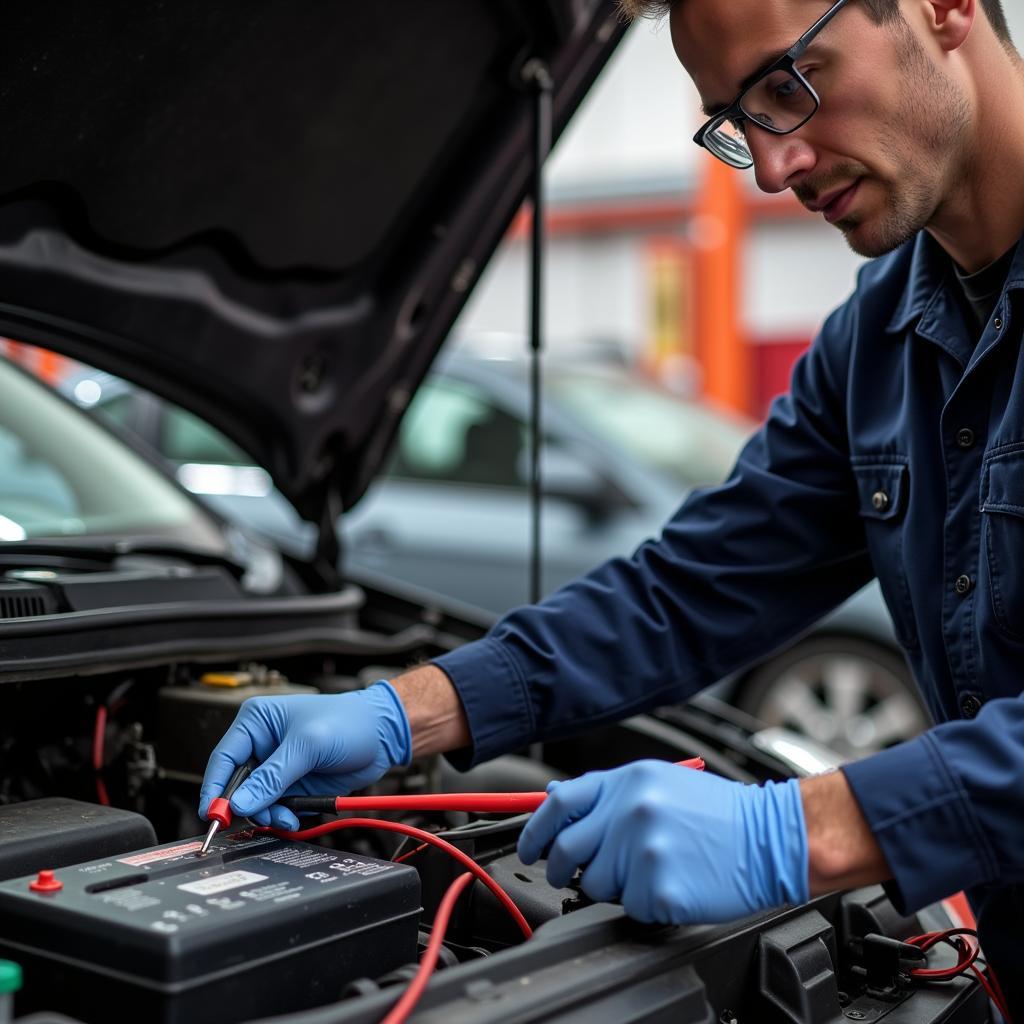Is Swapping Out Car Battery During Service a Thing?
Is swapping out your car battery during service a common practice? Many drivers wonder if their car battery is routinely replaced during a service appointment, and the answer isn’t always straightforward. It depends on a variety of factors, including the age and condition of your battery, the type of service being performed, and the specific recommendations of your mechanic.
Understanding Car Battery Replacement During Service
Replacing a car battery isn’t typically part of a standard oil change or minor service. These services focus on routine maintenance like fluid top-offs and filter replacements. However, during a more comprehensive service or inspection, your mechanic will likely test your battery’s health. If the battery is nearing the end of its lifespan or showing signs of weakness, they’ll recommend a replacement. This proactive approach can prevent unexpected breakdowns and ensure reliable starting power.
When Should You Expect a Battery Swap?
The lifespan of a car battery varies, typically lasting between three to five years. Several factors influence its longevity, including extreme temperatures, driving habits, and the quality of the battery itself. During a service appointment, your mechanic will use specialized tools to test the battery’s voltage and cold cranking amps (CCA). These tests provide crucial insights into the battery’s ability to hold a charge and deliver power, especially in cold weather. If the test results indicate a weakened battery, your mechanic will discuss replacement options. They’ll also inspect the battery for physical damage, corrosion, and loose connections, which can impact its performance.
 Car Battery Testing During Service
Car Battery Testing During Service
Why Isn’t Battery Replacement Always Included?
Some drivers might assume that battery replacement is automatically included in a car service, but that’s not usually the case. Batteries are considered wear-and-tear items, similar to tires or brake pads. Replacing them prematurely adds unnecessary cost to the service. Moreover, many batteries perform reliably for several years without issue. Including battery replacement as a standard practice would lead to unnecessary replacements and increased expenses for car owners.
Factors Influencing Battery Replacement Recommendations
Several factors contribute to a mechanic’s decision to recommend a battery swap during a service. Age is a primary consideration. As batteries age, their internal components degrade, leading to reduced performance. Climate also plays a role. Extreme temperatures, both hot and cold, can accelerate battery wear. Driving habits, such as frequent short trips, can prevent the battery from fully recharging, shortening its lifespan. Finally, the overall condition of the battery, including signs of corrosion or damage, can indicate the need for replacement.
Proactive Battery Replacement: Preventing Headaches Down the Road
While replacing a car battery during service might seem like an added expense, it can save you from the inconvenience and potential danger of a breakdown. A failing battery can leave you stranded, especially in unfavorable weather conditions. Proactive replacement ensures reliable starting power and avoids disruptions to your daily routine. Furthermore, a healthy battery contributes to the overall performance of your vehicle’s electrical system, preventing issues with headlights, radio, and other essential components.
Making Informed Decisions About Your Car Battery
“Regular battery testing and maintenance are essential,” says John Smith, ASE Certified Master Technician. “A proactive approach can significantly extend the life of your battery and prevent unexpected issues.” He emphasizes the importance of consulting with a qualified mechanic to determine the best course of action for your specific vehicle and driving conditions. “Don’t wait until your car won’t start to address battery problems,” he advises.
“Modern diagnostic tools can provide accurate assessments of battery health,” adds Jane Doe, Automotive Electrical Systems Specialist. These tools go beyond simple voltage checks, providing detailed information about the battery’s internal resistance and capacity. “This data allows us to make informed recommendations about replacement, ensuring optimal performance and reliability,” she explains.
Conclusion
Is swapping out a car battery during service a thing? Yes, it is, especially when necessary. While not a routine part of every service, it’s a crucial preventative measure. Regular testing, combined with professional assessment, helps determine the optimal time for replacement. This proactive approach ensures reliable starting power, prevents breakdowns, and contributes to the overall health of your vehicle.
FAQ
- How often should my car battery be tested? Ideally, every six months or during regular service appointments.
- What are the signs of a failing car battery? Slow engine cranking, dimming headlights, and clicking sounds when starting.
- How long does a car battery typically last? Three to five years, depending on various factors.
- Can I replace my car battery myself? Yes, but it’s recommended to consult your car’s manual and seek professional assistance if needed.
- What factors can shorten the lifespan of a car battery? Extreme temperatures, short trips, and improper maintenance.
- How much does a car battery replacement cost? Prices vary depending on the type of battery and your location.
- What should I do if my car battery dies? Contact a roadside assistance service or a qualified mechanic.
Need help? Contact us via WhatsApp: +1(641)206-8880, Email: [email protected] or visit us at 456 Oak Avenue, Miami, FL 33101, USA. We offer 24/7 customer support. is it easy to service your own car Check out our other articles on car maintenance and repair tips for more valuable information.

